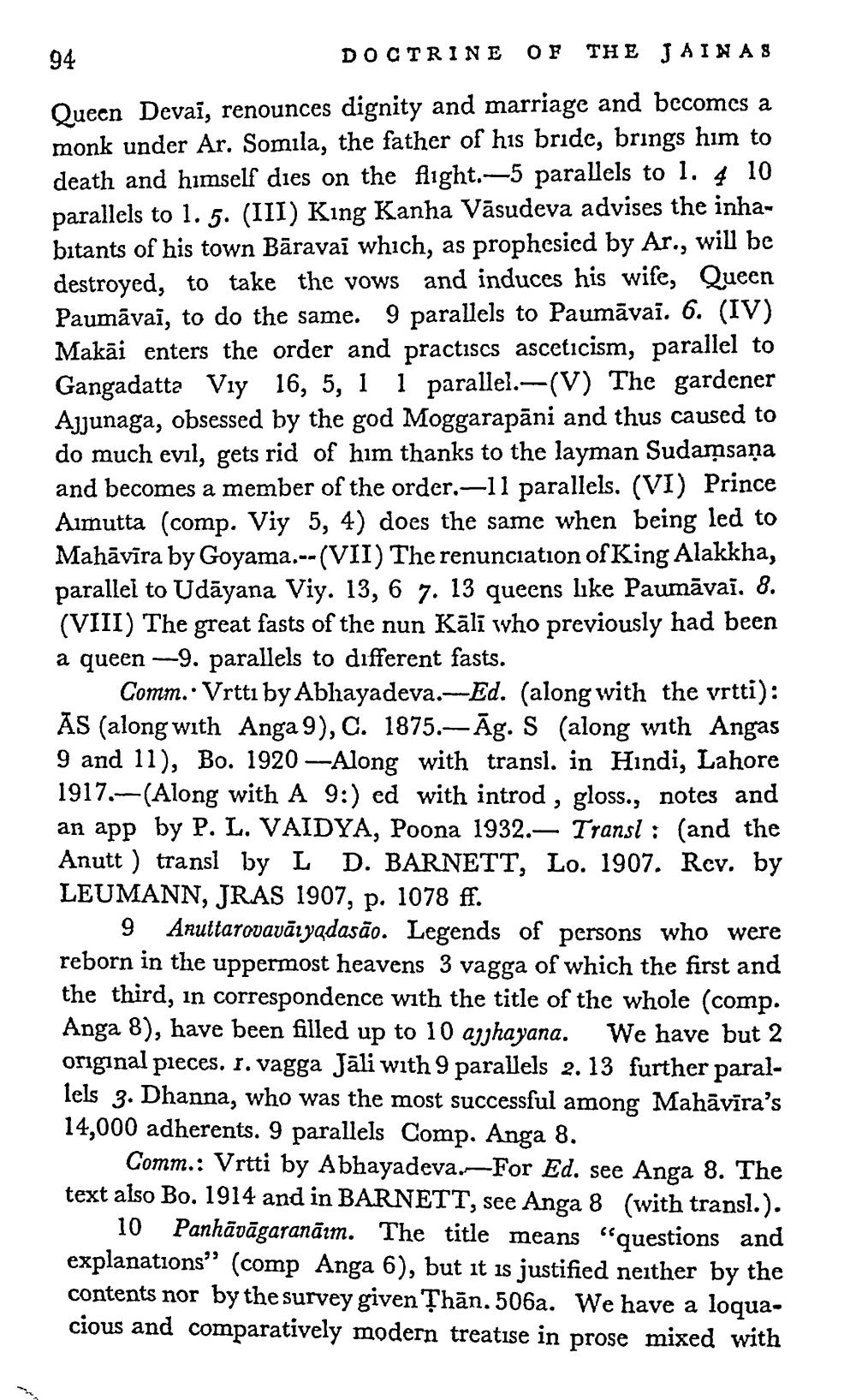________________
94
DOCTRINE OF THE JAINAS
Queen Devai, renounces dignity and marriage and becomes a monk under Ar. Somila, the father of his bride, brings him to death and himself dies on the flight.-5 parallels to 1. 4 10 parallels to 1. 5. (III) King Kanha Vasudeva advises the inhabitants of his town Bäravai which, as prophesied by Ar., will be destroyed, to take the vows and induces his wife, Queen Paumāvai, to do the same. 9 parallels to Paumāvai. 6. (IV) Makai enters the order and practiscs asceticism, parallel to Gangadatta Viy 16, 5, 1 1 parallel.-(V) The gardener Ajjunaga, obsessed by the god Moggarapani and thus caused to do much evil, gets rid of him thanks to the layman Sudamsana and becomes a member of the order.—11 parallels. (VI) Prince Aimutta (comp. Viy 5, 4) does the same when being led to Mahāvīra by Goyama.--(VII) The renunciation of King Alakkha, parallel to Udayana Viy. 13, 6 7. 13 queens like Paumāvai. 8. (VIII) The great fasts of the nun Kāli who previously had been a queen-9. parallels to different fasts.
Comm. Vrtti by Abhayadeva.-Ed. (along with the vrtti): AS (along with Anga 9), C. 1875.-Ag. S (along with Angas 9 and 11), Bo. 1920-Along with transl. in Hindi, Lahore 1917. (Along with A 9:) ed with introd, gloss., notes and an app by P. L. VAIDYA, Poona 1932.- Transl: (and the Anutt) transl by L D. BARNETT, Lo. 1907. Rev. by LEUMANN, JRAS 1907, p. 1078 ff.
9 Anuttarovavāryadasão. Legends of persons who were reborn in the uppermost heavens 3 vagga of which the first and the third, in correspondence with the title of the whole (comp. Anga 8), have been filled up to 10 ajjhayana. We have but 2 original pieces. I. vagga Jāli with 9 parallels 2.13 further parallels 3. Dhanna, who was the most successful among Mahāvīra's 14,000 adherents. 9 parallels Comp. Anga 8.
Comm.: Vrtti by Abhayadeva. For Ed. see Anga 8. The text also Bo. 1914 and in BARNETT, see Anga 8 (with transl.).
10 Panhāvāgaranam. The title means "questions and explanations" (comp Anga 6), but it is justified neither by the contents nor by the survey given Than. 506a. We have a loquacious and comparatively modern treatise in prose mixed with




